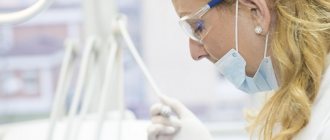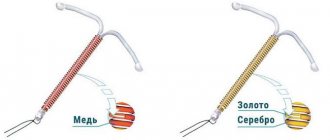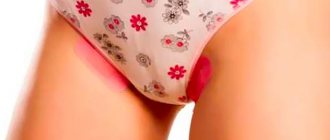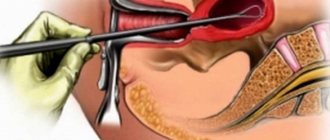How to stop drinking jess
Hormonal drugs are an excellent method of contraception. But sooner or later the question arises of the advisability of stopping the use of a particular drug. The discontinuation of tablets, as well as their prescription, should be recommended by a specialist.
Instructions
1. Make an appointment with your gynecologist if you decide to stop taking hormonal medications.
After the examination and smear, you will be advised on other methods of contraception, and will also be advised on the best way to stop using the product.
2. The optimal and most gentle way to stop taking the drug is to finish the entire package of tablets. After a seven-day break, do not start using hormones. It is worth noting that the hormonal effect can persist for another week. But if you are not planning to conceive (and it is better to postpone it for 2-3 months), resort to barrier methods of protection.
3. If you feel unwell, for example, severe abdominal pain, migraine or other unpleasant sensations, stop taking hormonal pills on the same day.
Abrupt withdrawal of the drug can cause severe uterine bleeding, but in this case there is simply no other way out of the situation. After visiting your doctor and undergoing an examination, it is possible that you can resume taking the drug.
But this is provided that it does not harm your health.
4. For planned operations, stop taking the hormonal drug at least 2 weeks before surgery. Talk to your doctor about this. Contraceptives change the biochemical composition of the blood, which negatively affects the course of the operation and the rehabilitation process.
5. Once every 3-4 months, take a break from taking hormonal pills. Finish the last pill from the blister; do not take the drug after menstruation.
If your next period starts on time, you can resume using the product.
When menstruation does not follow or it begins very late, this means that you need to be examined by a doctor. It is possible that a hormonal imbalance has occurred.
KakProsto.ru
Question: Hello, I’m taking the drug Jess, prescribed by my gynecologist. Is it possible to throw in half a pack? problems started
Alina
It's better to definitely go to the doctor. You can't joke with hormones. He will tell you to quit or finish drinking.
Yulia Pogozheva
No! Die, but finish the pack. Otherwise, there will be bleeding and then the cycle will become so disrupted that you won’t be able to straighten it out.
Valya
you must go to the doctor and she must either stop the course of this drug or prescribe a replacement. but of course there is no need to stop abruptly.
Victoria Foxlove
if there are side effects, then it’s better not to drink, there are doctors who advise to endure but drink if this is a treatment, but again, why force your body, if you experience discomfort, you should be prescribed other drugs, if the doctor refuses, insist or change , because it could be worse. Stop it, it won't get any worse and see a doctor
Question: please advise. Is it possible to stop drinking Jess? I drank 17 tablets. I feel terrible. The doctor said I need to finish the pack
Imae_77
If the side effects are so pronounced, then you can stop taking the medicine at any time; after discontinuing Jess, you will experience withdrawal bleeding - a menstrual-like reaction.
Lily -
You need to finish the pack, there are only 4 tablets left! or is it 28?
Elena S
You definitely need to finish the pack! Otherwise you can disrupt your hormonal levels!
Kitty
Finish your drink, of course. Why don’t you listen to the doctor?
Question: Is it possible to stop taking Jess Plus hormonal pills after drinking only one pack?
Panther
The sooner you stop using this crap, the better. And about women who take hormones all their lives, you are mistaken; they stop producing their own hormones completely.
Andrey Enyutin
Your southern gynecologists are strange. your temperature could easily be caused by a blood clot in the veins or arteries, or it could be a banal infection, i.e. you need a visit to the doctor. Is it possible to stop taking it now - it is possible, but the risks must be assessed by a doctor. insisting on admission is nonsense.
your problems are connected only with the abuse of sweets. this can be seen in the structure of your body. as soon as you stop eating only cookies and chocolates, there will be less acne. In addition, when you finish drinking Jess, you should drink Deprim Forte + avoid the sun, use creams with high spf.
directly for acne - rozamet cream.
Question: When can you stop taking hormonal birth control pills?
Spider
You finish the pack and throw it away - no problem. 3 months is different, if you are going to drink for a long time, then the body gets used to the pills, so to speak, after the third pack.
Elena
It’s possible after 2. The main thing: you should not quit without finishing the monthly package.
sNe}|{naya
Gynecologists are certainly busy with other things right now
Sashulka Komissarova
finish your pack... and take a test in 2 weeks.
Khitana
What kind of idiots are they?? ? Who allows you to take hormones without a doctor?? ? God, right now you can’t even buy them in pharmacies without a prescription! The minimum of consequences is bleeding... PPC. . Finish the standard and call it a day. Go to the doctor. Please note that after stopping the OC, the risk of becoming pregnant will be higher.
Nika __
I don’t agree with Ksenia’s answer. When I went to the doctor with this question, she gave me a whole list of pills and said: choose. If they don't fit, buy others. (I went to the pay office, I was upset that I had wasted my money.) Jess drank, although they were not on the list. I drank for 6 months. all is good. I advise you, if it’s bad, quit...
En
finish it and quit. And then it would be good to go to the doctor...
How to stop taking Jess? - on baby.ru
Source: https://kaknepit.ru/lechenie/kak-brosit-pit-dzhes.html
The drug Jess Plus - instructions for use, how to stop taking birth control pills
The use of hormonal contraceptive pills is currently the most popular and reliable method of contraception. Many women are prescribed the latest generation combination drug “Jess Plus”, which is well tolerated and allows not only to prevent unwanted pregnancy, but also to get rid of some endocrine system disorders.
Taking a contraceptive in accordance with the instructions usually does not raise any questions, but if it is necessary to cancel it, most patients experience difficulties and fear. Let's look at how to stop drinking Jess Plus without harm to your health, as well as the distinctive features, composition and methods of using the drug.
Side effects
The most common side effects that occur while taking a contraceptive include:
- mood swings, depression;
- sleep disorders;
- headache and dizziness;
- increased blood pressure;
- nausea, lack of appetite;
- sensitivity of the mammary glands;
- absence or excessive intensity of menstrual bleeding;
- relapses of chronic inflammatory diseases of the female genital area.
The most serious side effect requiring immediate attention is thromboembolism and similar conditions.
Mode of application
According to the annotation, Jess Plus contraceptive pills are taken orally daily, maintaining the same time intervals. Simultaneous food intake does not affect the absorption of active substances. The product is swallowed without chewing or crushing, and washed down with several sips of clean water.
One package should be used twenty-eight days in advance (one tablet per day) in strict accordance with the labeling, starting with the first tablet containing hormonal components.
Despite the fact that all active ingredients contain identical concentrations of active substances, they should be drunk strictly in order. This will help avoid possible confusion and omissions. A new package begins the next day after the previous one is completed; breaks are not allowed.
You need to take COCs from the first day of your cycle.
If the patient started using Jess Plus for the first time, without previously taking other hormonal contraceptives, the active components of the drug begin to act immediately, and additional protection is not required.
It is allowed to delay the start of contraception until the fifth day of the cycle inclusive, but in the first week of taking the pills, a condom should be used during sexual intercourse.
Use after childbirth and abortion
If a pregnancy is terminated (spontaneous or surgical) in the first trimester, COCs must be taken immediately. In this case, you do not need to use additional mechanical means of protection against unwanted conception.
After an abortion in the second trimester or the birth of a child, the drug can be used starting from 21-28 days (in the absence of breastfeeding). It is recommended to use a condom during the first week.
Changing contraceptives
Let's look at how to switch from other contraceptives to Jess Plus: instructions and basic rules:
- When switching from external contraceptives (spiral, intravaginal ring or patch), the first pink tablet should be taken on the day the previous drug is removed.
- When switching from other hormonal drugs for oral administration, Jess Plus should be taken the next day after completing the packaging of the previous protective agent. If the package of previous OCs included 21 tablets, you can start taking the new drug on the eighth day after a week-long break.
You can switch to “Jess Plus” from its analogues (“Jess”, “Dimia”) at any time, since the composition and concentration of the active ingredients are completely identical. Regardless of the previous contraceptive, gynecologists recommend using additional mechanical means of protection in the first 7 days after the transition.
Skipping a drug
If a woman does not take the pale orange (inactive) pills within the allotted time, this will not affect the contraceptive effect of the drug, since the placebo does not contain hormones. Missed doses can be ignored. It is recommended to get rid of untaken tablets so as not to confuse them with active ones in the future.
Actions to take when missing hormonal (active) components of the drug depend on the day of administration and the time of delay:
| Pass duration | Serial number of the missed pill | Contraceptive effect | Action |
| Less than 24 hours | 1-28 | Doesn't decrease | Take the missed dose as soon as possible and take the rest of the tablets as directed. |
| More than 24 hours | 1-7 | Decreases slightly | Take the missed dose as soon as possible; you can take 2 tablets at once. Use the rest of the package according to the instructions. Use a condom for a week |
| 8-14 | Take the missed dose as soon as possible; you can take 2 tablets at once. Use the rest of the contents of the pack according to the instructions. The need for additional protection arises only if several tablets are missed | ||
| 15-24 | Significantly reduced | Take the missed dose as soon as possible; you can take 2 tablets at once. Use the rest of the package as directed, except for inactive tablets (those should be thrown away and immediately begin the next package). Use a condom for a week |
Source: https://yazdorov.win/ginekologiya/preparat-dzhes-plyus-instruktsiya-po-primeneniyu-kak-perestat-pit-protivozachatochnye-2.html
Other phenomena
While taking an estrogen-progestin drug, other side effects may occur. Jess Plus is capable of provoking changes of the following nature:
- Metabolic (increase or decrease in body weight, increased appetite or anorexia).
- Gastrointestinal (nausea, abdominal pain, flatulence, constipation).
- Neuropsychiatric (decreased mood and libido, depression, insomnia).
- Musculoskeletal (pain in the back and limbs, cramps).
- General (weakness and malaise, swelling, increased sweating).
Adverse reactions have been reported both in clinical trials and during post-marketing studies.
Menstruation when taking Jess: how it goes and what to do if there is a delay
Hormonal contraceptives affect a woman’s body, making changes to the menstrual cycle. How are your periods while taking Jess? Which discharges are considered normal, and which ones indicate a negative reaction of the body to contraception? What to do when there is no menstruation and should you consult a doctor in such a situation? The answers to these questions are given below.
Changes in the body under the influence of OK
The purpose of the drug is to prevent unwanted pregnancy.
Birth control pills have the following effects in this area:
- Impact on the ovaries with subsequent suppression of ovulation.
- Effect on sexual mucus to hinder the movement of male cells.
- Changing the process of endometrial development to prevent the implantation of the fertilized egg.
If the thickening of vaginal fluid does not affect menstruation, then the rest of the effect affects menstrual periods. Changes in the functioning of the ovaries provoke completely different periods. The same applies to the process of rejection of the mucous layer of the uterus. Therefore, not only the cycle, but also bleeding may occur in an unusual manner.
When to expect your first period when you start taking Jess?
You need to take Jess from the first day of your period, one tablet at a time. When taking birth control pills, your period comes at the end of the package, that is, after the end of the pacifiers. There are four such pills in the blister, the rest are active.
If a woman stuck to the schedule and started taking placebo pills on time, then her period should begin a few days after taking the inactive pills. The maximum permissible deviation is from two to four days.
Against the background of oral contraceptives, menstruation is called withdrawal bleeding.
Rejection of the endometrium begins only against the background of a decrease in the level of active hormones. This is why pacifiers are provided in blister packs.
How do menstruation go with Jess?
In most cases, Jess causes scanty monthly discharge at the end of the cycle. A reduced amount of blood is caused by the following factors:
- Ovaries. Under the influence of a contraceptive, the female reproductive organs no longer produce hormones in the same quantities. The active components of the drug inhibit ovarian function, causing an altered discharge pattern.
- Uterine mucosa. Before contraception, the endometrium thickens approximately in the middle of the cycle and acquires a porous structure. Under the influence of Jess, before the rejection process, the mucous membrane is not fully formed, and therefore menstruation becomes less abundant.
And also the color of menstruation often changes when taking Jess Plus. They turn brown due to increased blood viscosity, faster clotting and oxidation of menstruation.
Find out about other causes of scanty periods in women by following the link to one of our articles.
If your period comes early
Most often, women confuse intermenstrual bleeding with menstruation. They are not dangerous in the first 2-3 months of therapy and can last 2 weeks. They disappear after the body adapts to changed hormonal levels and can smoothly transition into menstruation.
A large amount of discharge indicates breakthrough bleeding. It may occur due to the following factors:
- Individual intolerance to the drug.
- Too low dose of hormones.
- Gynecological pathologies of the ovaries, endometriosis, the presence of neoplasms.
- Smoking and alcohol abuse.
- Abrupt course cancellation.
- Skipping a pill.
- Taking antibiotics.
- Excessive use of antidepressants.
- Problematic absorption of drug components (vomiting, diarrhea during menstruation);
- Treatment with traditional medicine based on St. John's wort.
- Presence of sexually transmitted infections.
Women need to remember that menstruation during active pills during the first three cycles after the first pill does not pose any threat to health. There is no need to discontinue the drug, so you should continue to take the pills as usual.
After the period of adaptation to Jess is completed, any spotting or menstruation ahead of time should be discussed with a gynecologist. The specialist will order an examination or advise replacing the OC.
If the discharge does not end
Often on forums on the Internet you can find complaints from women: “... I drink Jess Plus and my period has been going on for 10 days, what should I do...”. This is another acceptable deviation when taking a contraceptive.
In a standard situation, monthly bleeding lasts from two to five days. After this time, bloody discharge often begins. They have nothing to do with menstruation, acting as a sign of the adaptive period.
Prolonged menstruation after several cycles of use is considered a violation and requires serious diagnosis. Replacing the oral contraceptive will help solve the problem. If the doctor finds abnormalities in the functioning of the genital organs, then the use of contraceptives is stopped and appropriate treatment is prescribed.
If there is a delay
It is possible that a woman can become pregnant. Cases of conception during the course are rare, but they cannot be discounted. The woman could have violated the instructions by missing the pill. Factors that reduce the effectiveness of contraception also play a huge role:
- Uneven appointment times.
- Problems with the gastrointestinal tract (vomiting, diarrhea).
- Taking other medications.
If there is a delay, you must do a home test or have your blood tested at the antenatal clinic.
Jess prepares the body well for pregnancy. Its content includes components in the form of folates, which are necessary for the normal development of the fetus.
The medical field does not exclude one-time delays if this was observed before therapy. They can be caused by stress or adverse external influences.
In order not to worsen the situation, girls should:
- start new packaging on schedule;
- avoid missing pills;
- take placebo on time.
If menstruation does not appear in the second cycle after taking the last white pill, you need to consult a specialist. A woman needs to tell her doctor when she started taking the pills and how her body reacted before.
Why no periods
When taking Jess, a delay in menstruation can be caused by:
- hormonal disorder;
- premenopause;
- long-term use of OK;
- problems in the functioning of the endocrine system;
- improper functioning of the ovaries.
Prolonged absence of menstruation cannot be ignored at any age. And only a medical examination can accurately determine the cause and help choose the appropriate solution.
Often the delay is caused by factors unrelated to Jess:
- Physical overexertion.
- Stress and emotional fatigue.
- Colds.
- Climate change.
- Strict diets.
- Lack of vitamins.
- Bad habits.
In such situations, the endometrium will begin to be rejected in the usual manner only after eliminating the root cause and improving lifestyle.
Periods after stopping Jess
Each body reacts differently to stopping the use of birth control pills. When canceling Jess, the following situations are possible:
- cycle unchanged;
- copious discharge;
- scanty menstruation;
- delays.
How the cessation of contraception went also has an impact. There are two options for canceling a course:
When the packaging is finished
If Jess was discontinued on the last pill, then the risk of withdrawal side effects is virtually eliminated. The chance of rapid recovery of the body and normal functioning of the ovaries in the next cycle also increases.
Anytime
When a woman suddenly stops taking pills, it is imperative to monitor her health status. Doctors do not recommend abruptly stopping taking the drug due to an unexpected reaction from the reproductive system.
In the first case, the percentage of rapid onset of menstruation increases. And if a woman quit abruptly, then delays occur more often.
When will your period start after stopping Jess Plus?
After stopping OK, your period should come in a couple of months. Under ideal conditions, hormonal levels should recover quickly. There is no need to worry if you don’t have your period after stopping Jess during the first cycle.
A slight deviation is allowed due to the woman’s age (over 35 years) and long-term use of tablets. In these cases, the body may need from six months to twelve months to recover.
When should you visit a gynecologist?
It is imperative to consult a doctor if your period does not start at the beginning of the next cycle after the first delay. In most situations, long-term recovery is observed, but pathology cannot be ruled out.
You need to understand that old problems with menstruation most often return after Jess. If before taking the pills the cycle was not regular, then after discontinuation the situation may repeat. In this case, gynecologists allow a delay of 30 to 60 days.
Negative effects on other systems
Taking hormonal contraceptives affects not only the condition of the skin - changes also affect other body systems. The incidence of systemic side effects varies widely, but there are many more rare conditions.
Gynecological
Most often, while using Jess Plus, women experience negative effects from the genital organs and mammary glands. Among them, the following conditions and symptoms are likely to occur:
- Uterine (menstrual-like) bleeding.
- Dryness of the vaginal mucosa.
- Vulvovaginal candidiasis.
- Soreness of the mammary glands.
- Fibrocystic mastopathy.
Among women taking combined oral contraceptives, including Jess Plus, there was a slight increase in the incidence of diagnosed breast or cervical cancer. However, the exact cause-and-effect relationship between hormonal correction and tumors has not been established.
Most often, it is the gynecological area that reacts to the use of hormonal contraceptives - with functional or morphological changes.
Cardiovascular
Among the most dangerous, although rare, side effects are cardiovascular. A connection has been proven between taking hormonal contraceptives and venous or arterial thrombosis. This may manifest itself in the following conditions:
- Strokes.
- Myocardial infarction.
- Pulmonary embolism.
- Deep vein thrombosis (arterial occlusion) of the lower extremities.
Very rarely, changes are observed in other vascular systems - mesenteric, hepatic, and in the retina. An increased risk of thrombosis usually exists during the first month of taking Jess Plus. Among other effects on the cardiovascular system, it is also worth noting arterial hypertension, dizziness and headaches (including migraines), nosebleeds, tachycardia (increased heart rate).











